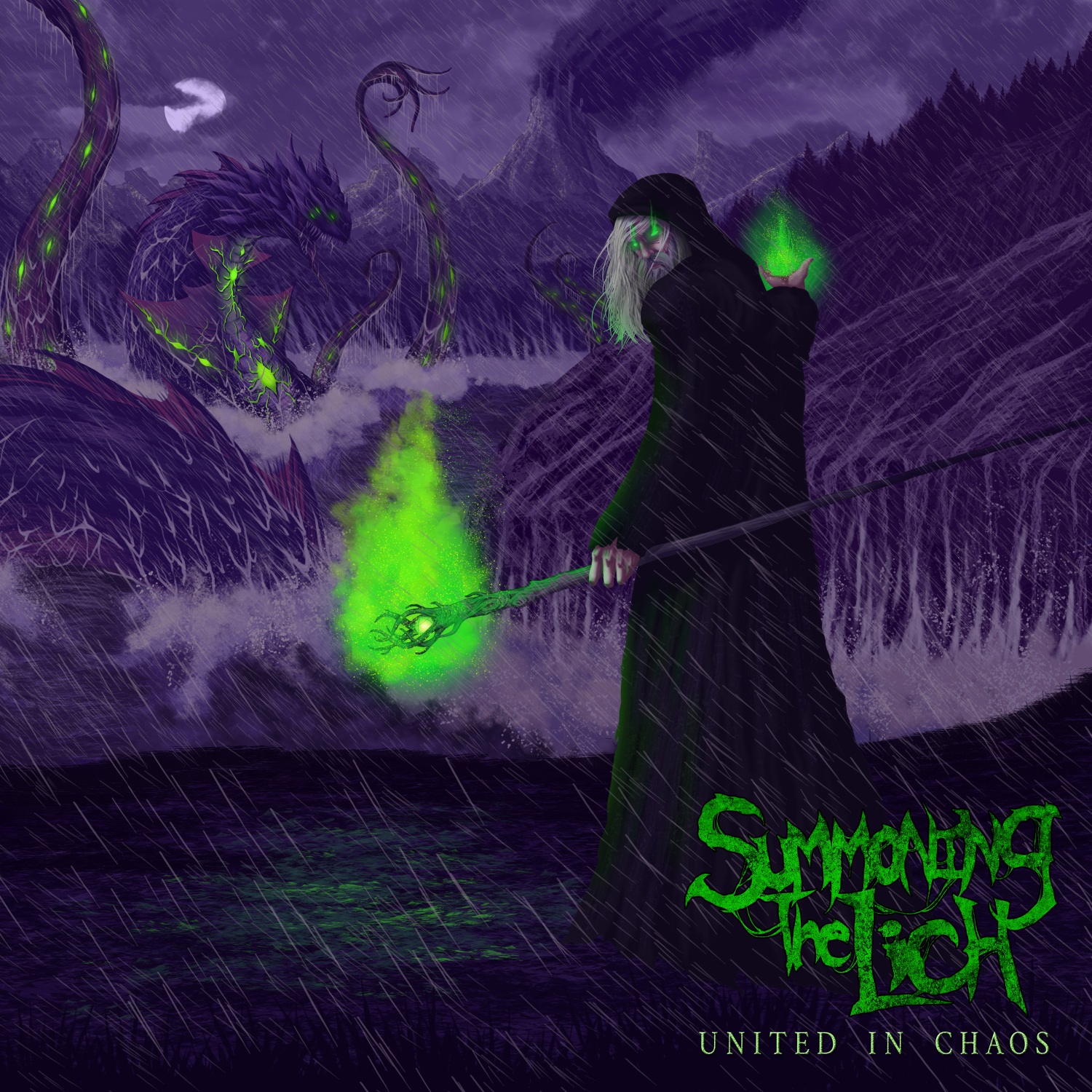Interviews
Interview with Farewell To Freeway frontman Chris Lambert, keyboardist Michele Walter and drummer Richie Gregor
The last time I had the chance to “speak” (an e-mail interview, which I usually loathe) with Farewell to Freeway, the band was shopping its highly memorable Year Of The Sun EP, In These Wounds, to various labels. Since then, the band has inked a deal with Chicago’s notorious Victory Records, releasing their full-length Definitions in early 2008. While this may be the first taste for many…

The last time I had the chance to “speak” (an e-mail interview, which I usually loathe) with Farewell to Freeway, the band was shopping its highly memorable Year Of The Sun EP, In These Wounds, to various labels. Since then, the band has inked a deal with Chicago’s notorious Victory Records, releasing their full-length Definitions in early 2008. While this may be the first taste for many stateside listeners, the band has been aggressively touring Canada and the northern US for one hell of a long time. The interview came before the band’s opening slot on Rosesdead’s final tour, and I should note that FIIF’s set was musically airtight, offering (no bullshit) one of the best sets I’ve seen at St. Catharines’ L3 Nightclub. If you get the chance, catch them in your area – regardless of where you live, they’ll probably be in the area in the next few months.
Farewell To Freeway is a touring band. I mean, you’ve been on the road for years. How do you think that road warrior attitude has influenced where you are now?
Richie: Basically, we just want to stay on tour. We want to get the new record out, and have it heard and seen live. Being in a touring band, that’s the best way to sell your CDs and promote yourself. It’s tough to compete with all these bigger bands all over the radio and whatnot in terms of disc sales, so being on the road helps us get out there. We have a lot of fun, so why not just stay on tour?
Chris: Staying on the road is the only way you can be a band, period. You can’t just form a band and sit around and play local shows forever. I mean, we actually did that, and it just comes to a point where people get tired. You’ve got to branch out, and as Richie said, it’s major competition, so we’ve got to get out there and just cover as much as we can. The more we shove our stuff in their face, the more you get recognized. That’s how all products are – you just shove them in people’s faces and hope they notice.
You made the point of this heap of other bands with whom you’re competing. The scene you’ve been playing in for years is starting to get very crowded. What is it about Farewell to Freeway that’s standing out and allowing you to keep progressing despite this flash-in-the-pan phenomenon?
Michele: I lost my train of thought…
Ed. A brief cameo from Sydney’s bassist offers a light-hearted break to the interview.
Michele: The work ethic is really important. I think we’re a band that, having had so many people see us so many times, they kind of want to know in what we’re going to do next. I think that’s because we’ve always been a band that’s all over the place.
Richie: We try to mix up the styles of music we play. I mean, we’re not a hardcore band, but we play a lot of shows for hardcore kids, and so we kind of pride ourselves on not really being set in one specific genre.
Michele: I think we do it tastefully, too. We don’t just decide, “Let’s write a metal part, or let’s write a hardcore part.” I think it comes out naturally in our songwriting.
Chris: We’ve been able to get on any type of bill and not really seem way out of place. We can cover rock, hardcore, metal – I won’t go much further than that, but that’s kind of our difference.
Last time we spoke, you were shopping your EP (In These Wounds) to some labels. How did the arrangement with Victory (Records) work itself out?
Chris: I think that goes back to what Richie was saying about work ethic. We’ve been doing this for a while, and that’s what you have to do. The past four years have been nothing but music, the road, and seeing and covering as much ground as we possibly can. You try to promote yourself, push yourself, and sell yourself, and I think we got lucky – lucky enough to get inside with some good people, so we had the opportunity to show them what we can do.
When did you start writing material for Definitions?
Richie: We were lucky enough to tour with some Victory bands, and we got to know some of the staff there. They pretty much kept us on their radar for around a year.
Chris: We pretty much had the inside scoop that when you get signed, [Victory wants] a record. They expect that you’ve been doing this for a while, and have something ready to go. A lot of bands aren’t aware of that, and so they got caught having to write a whole record in, like, a month. That’s a lot of pressure, and 90% of the listeners out there can hear that. You can tell which songs have been written in two weeks.
Michele: We were at the point where we wanted to be prepared for whatever, you know? If we don’t get signed, we’ve got some new songs, and if we do get signed, we’re ready to record. So we kept writing, and everything worked out well.
Chris: If it wasn’t going to be Victory, it was going to be the next [label], and so we were just building up the back end so that when we got the call, we were ready. And it worked well, because when the time came, instead of taking three or four weeks to write any material from scratch, we had our full record, and all we did was tighten it and make it as good as possible. We’re all excited and stoked about the record.
Michele: We just didn’t want to be rushed.
Richie: All the songs were where they needed to be to go into the studio, minus a couple small parts, which required some studio magic.
Did the label have any influence on the content of the record?
Michele: Not at all, surprisingly.
Chris: I’ll just throw it out there – everybody’s heard the horror stories about the label. We get asked about them all the time, but we knew that going into it. We just wanted to be a band that was really hands on, and we’re still like that now. We still do the majority of our business ourselves. We didn’t want to get lost in the paperwork or anything – we were always aware of what was going on, and we made them aware of what we wanted to do.
Michele: If you want to work with them, you can. We had full creative control – they didn’t have any input into that at all.
It’s pretty clear Victory knows what it’s doing getting music out there. I mean, they’ll only release things they can sell, so the fact they left you to your business is somewhat of a compliment in itself.
Richie: They did come at us with a few ideas for producers to look at, but we already knew what we wanted to go for, and were pretty persistent on which studio we wanted to record in, and the producer we wanted.
Which studio is that?
Richie: It was Zing Studios. Eric Arena produced us. It’s the same studio where (Killswitch Engage guitarist) Adam D records all the Killswitch stuff. It’s just outside of Boston. Timing worked out perfectly, and everything sort of fell into place. We spent about a month in a two-star hotel room.
Michele: With a mouse…
Richie: And we lived out of the hotel for a month, and recorded at Zing Studios. It was pretty unreal.
Chris: Fifteen hours of just, serious recording all the time. We were really stoked that Victory let us go to the proper studio. They kind of recommended a few people for us, but we’ve been set on Eric for a long time now. We just told them that we knew they wanted the best possible record for us, and we strongly felt that this was the way to get it done. It was great they respected that, and that’s why the record came out the way it did.
What do you guys think of the record?
Michele: We love it. We all love it.
Richie: The only negative thing we’ve heard from reviews or whatever is stuff like, “This band doesn’t know who they want to sound like.” And it’s like, well, we don’t want to sound like anybody. We want to sound like ourselves. We’re a brand new band in the States, so they probably think we’re just starting out, but we’ve been doing this for six years. Hopefully they figure that out soon.
The first song on In These Wounds EP (“In These Wounds”) is the one I played for everybody back in the day. I used to always think, “This is the track that will make this band huge.” It’s not on Definitions. So, here’s a killer track that was only released in Canada…. You must be pretty happy with the content on the new record to omit this from the album.
Michele: Oh yeah! A lot of bands get asked to re-record old tracks, and we thought to ourselves that that’s the only song we’d have willingly re-recorded, but we weren’t asked and ended up not even really thinking about it.
Chris: We ended up having 11 songs that… Like, we first thought we’d have a bunch of b-sides and stuff that we’d cut down from the record, but then the more we kept writing, the more excited we got about each track. When we were done, we looked back and didn’t think there were any less-worthy songs, so gave us the eleven songs for the record.
Michele: It’d still be nice to release that EP in the States.
Chris: It’s actually in the process.
Richie: It’s coming out in the fall. Don’t quote me on it, but I believe it might be on Uprising Records. It just came down to, like “In These Wounds,” that was the song we shot a video for, and that really got us out there.
Chris: In the end, that song ended up being our record, and so it just didn’t make sense to start that over again. We needed to make a fresh break. And as much as we all love In These Wounds, we had this fresh, new, “This is our new record” mentality.
Richie: A lot of times, re-releases act as filler for a lack of better material. It has worked out for some bands, but we were at the point where we didn’t want to go back and bring anything old to the table. Here was this new opportunity, so we wanted to step up and create something current and new.
Any final words?
Chris: Just keep on keeping on. (Feminine voice) Keep your stick on the ice.
Michele: We just want everyone to hear our record. Whether you can buy it or not, we want people to check it out. It means the world when people come to our shows and show support, so any way you can participate is cool. We’ll always be on tour somewhere…. [ END ]
-

 Alternative/Rock1 week ago
Alternative/Rock1 week agoThe Warning Shake the Foundations of a Sold-Out Leeds Stylus [Photos]
-

 Alternative/Rock3 days ago
Alternative/Rock3 days agoThe Cruel Knives Headline Top Night of British Rock at Manchester’s The Lodge [Photos]
-

 Alternative/Rock2 days ago
Alternative/Rock2 days agoThe V13 Fix #012 w/ Dååth, Unearthly Rites, maybeshewill and more
-

 Alternative/Rock1 week ago
Alternative/Rock1 week agoThe V13 Fix #011 w/ Microwave, Full Of Hell, Cold Years and more
-

 Indie1 week ago
Indie1 week agoDeadset Premiere Music Video for Addiction-Inspired “Heavy Eyes” Single
-

 Folk1 week ago
Folk1 week agoKatherine Perkins Strikes the Right Tone with Her “Hold On” Music Video Premiere
-

 Country2 weeks ago
Country2 weeks agoBrooke Ashton Chats About Her “Someone” Single, Creative Process, and More!
-

 Culture6 days ago
Culture6 days agoRob Lundberg’s “Uncontaminated Sound – The Interviews” EP #67 w/ Joshua Farinella of The Whistleblower




